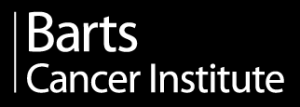April 19th
2012
Biodesign Auditorium
727 E. Tyler St. Tempe
AZ 85287
Cancer does not exist in a vacuum: the host immune system continuously monitors cells for alterations in protein content and structure. Several key questions in cancer immunology are the identification of antigens associated with tumor destruction, optimal timing and method of antigen delivery, and the identification of the regulatory pathways and tumor heterogeneity that limit effective immunity. The design of future vaccines requires understanding both the targets and the biology of effective anti-tumor immune responses. To determine if tumor cells can induce effective immune responses, we conducted first-in-human clinical trials of autologous breast cancer vaccination with tumor cells engineered to secrete granulocyte-macrophage colony stimulating factor (GM-CSF), a potent cytokine that stimulates immune activation. These studies demonstrated that autologous vaccination induces both antibody and T-cell immunity to tumor-derived proteins with minimal toxicity. Using proteomic monitoring of immune responses, the breadth and specificity of the immune response was determined. However, the timing of immune activation is critical; immunotherapy is likely to be most effective at eradicating minimal residual disease before the immune system is too impaired from the burden of disease. For breast and prostate cancers, tumor cells may disseminate early, and are frequently found dormant for years in the bone marrow prior to reactivation. The design of future immunotherapies that target both primary and disseminated tumor cells in the bone marrow will be discussed.



